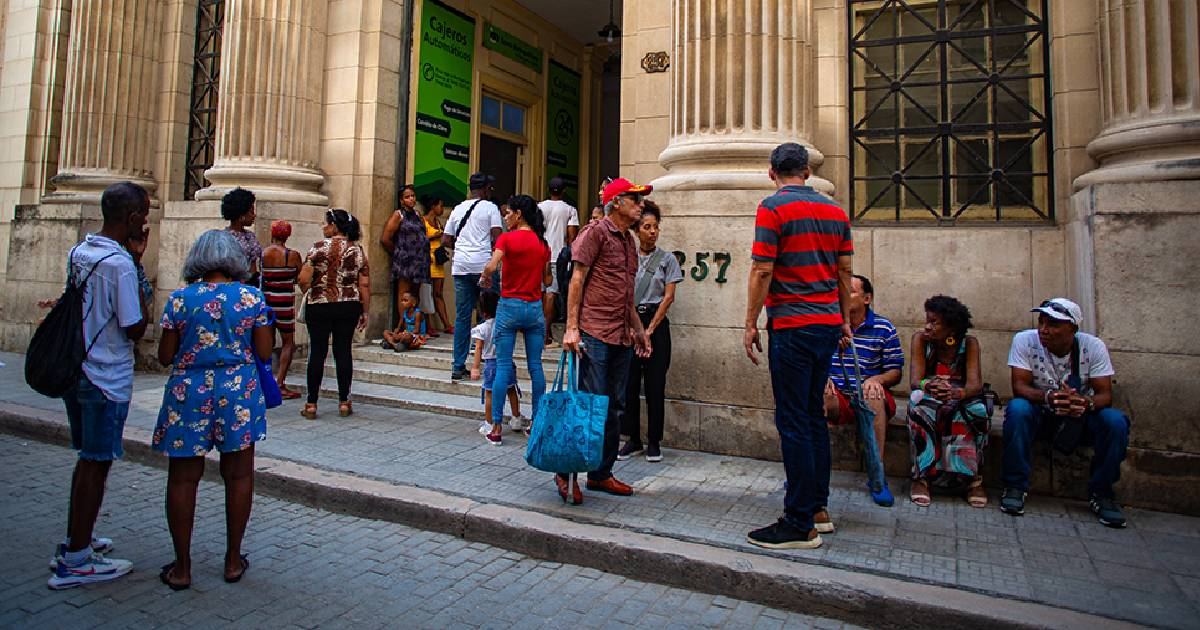
Related videos:
Cuban economist and academic Pedro Monreal criticized Cuba's economic performance in 2024 and expressed doubt about the progress in revitalizing the economy and the macroeconomic stabilization announced by the government.
Monreal, through a series of "notes" on his Twitter account, argued that regardless of what the regime says, the reality is that the country is facing severe "stagflation," characterized by an economic stagnation coupled with high inflation, which has worsened the decline in the standard of living for households.
According to Monreal, the government is distorting its message since it cannot claim there is a "reinvigoration of the economy" when it has contracted in four of the last six years. Furthermore, he emphasized that GDP at constant prices in 2024 was lower than in 2019, exacerbated by the impact of a dysfunctional electricity system.
On the other hand, the budget deficit remained between 10% and 12% of GDP, making it one of the highest in the world. This was financed through monetary issuance, which exacerbated inflationary problems, he explained.
It adds that inflation reached 28% year-on-year in October 2024, while food prices increased by 33.3%, further undermining the purchasing power of the population.
Monreal also pointed out that the loss of competitiveness in the tourism sector, regarded as the "engine" of the Cuban economy, has not been offset by any other leading activity.
In this regard, he criticized the official statement about the coexistence of "partial dollarization schemes" alongside the intention to move towards the dedollarization of the economy, calling it a clear contradiction.
The economist, who has worked for CEPAL, emphasized the decline in the share of workers' remuneration in GDP, which dropped from 46.3% in 2020 to 18.8% in 2023, contradicting the government's premise of prioritizing the population's standard of living.
On the other hand, the Cuban government has projected a GDP growth of 1% for 2025, based on the recovery of tourism, increased exports, and improvements in the national electricity system. However, Monreal believes that these forecasts are unrealistic in a context of structural crisis and lack of significant investment.
At the end of his analysis, the economist urges the regime to conduct a more critical examination of the measures taken to address the prolonged crisis affecting the country.
Their conclusions are based on the analysis of the regime's announcements this Wednesday before the National Assembly of People's Power, where new measures were approved to alleviate the economic crisis on the island, but with solutions that have already proven to be ineffective in addressing the country's problems.
Frequently Asked Questions about the Economic Situation in Cuba in 2024
What is stagflation and how does it affect Cuba in 2024?
Stagflation is an economic phenomenon that combines high inflation with stagnation or economic decline. In Cuba, for 2024, a contraction of GDP is anticipated alongside an annual inflation rate between 25% and 30%, indicating a stagflation situation. This scenario complicates citizens' access to basic goods and services, severely affecting their quality of life.
Why is investment in tourism criticized in the economic context of Cuba?
Investment in tourism is criticized for neglecting essential sectors such as health and agriculture. The Cuban government has prioritized investment in the tourism sector, allocating nearly 40% of investments to activities related to this industry. Despite this investment, tourism has not met the expected goals, raising questions about the sustainability of this policy. The focus on tourism has intensified the economic dependence on a vulnerable and cyclical sector, even as the country grapples with chronic deficits in essential areas.
What does the fiscal austerity policy implemented by the Cuban government entail?
Cuba's fiscal austerity policy focuses on a significant reduction in public spending to decrease the budget deficit. This reduction has not been achieved by increasing revenues but rather through drastic cuts to expenditures, which has led to a decline in the provision of public services and the impoverishment of Cuban households. Workers' wages have plummeted, negatively impacting the purchasing power of the population.
How does the economic policy of the Cuban regime affect the well-being of the population?
The economic policy of the Cuban regime has led to a significant deterioration of public services and a loss of purchasing power for workers. This policy, characterized by severe fiscal austerity and disproportionate investment in tourism, has exacerbated social inequalities and worsened the living conditions of the Cuban population. The combination of inflation, economic stagnation, and falling wages keeps the population in an increasingly precarious situation.
Filed under: